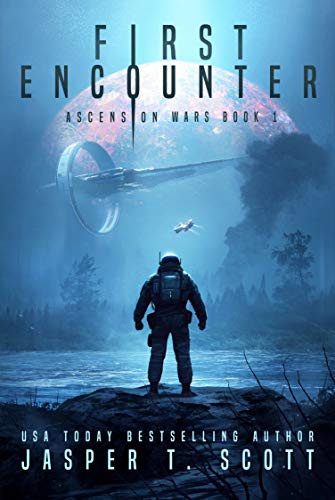Jasper Scott's First Encounter: A First Contact Nightmare
I love old paperbacks but am beginning to think I'm allergic to them. While I was recovering from a Defcon 1 sinus attack that might have been caused by a yellowing 1993 Francesca Lia Block fantasy novel, I dusted off my Kindle Oasis and read Jasper T. Scott's First Encounter, a science fiction novel about humanity's first contact with intelligent extraterrestrial life.
The book begins with the sunny utopian optimism of early Star Trek and then proceeds to crush the hopes and dreams of the spacefarers sent by Earth to boldly go to new planets for a meet-and-greet with their inhabitants.
I don't want to spoil plot details in a very plot-driven novel, but as things went fubar I was reminded of Stephen Hawking's warning that it might be a calamitous idea to make contact with other civilizations -- since they could be so advanced they "may not see us as any more valuable than we see bacteria."
The novel is the first in the Ascension Wars trilogy and focuses almost entirely on moving forward a fast-paced plot, leaving characterizations on the thin side. There are only four characters I could describe in detail after finishing the novel: the ship's captain, two crew members in a romantic relationship who deal with an unexpected pregnancy and the child who is born. The pregnancy occurs while the ship is heading home, which takes less than a year from their perspective but spans 180 years on Earth. (Those are some long trimesters!)
This time difference was one of the engaging elements of the story, but it did make me quizzical about one thing. When a crew member dies the anguished captain asks himself, "What will I tell their family?"
After 180 years, there wouldn't be any family to tell.
The next book in the series is Occupied Earth. Though I'd like to know the protagonists better I have enough investment in the story to continue reading the trilogy.
Add a Comment
All comments are moderated before publication. These HTML tags are permitted: <p>, <b>, <i>, <a>, and <blockquote>. This site is protected by reCAPTCHA (for which the Google Privacy Policy and Terms of Service apply).


